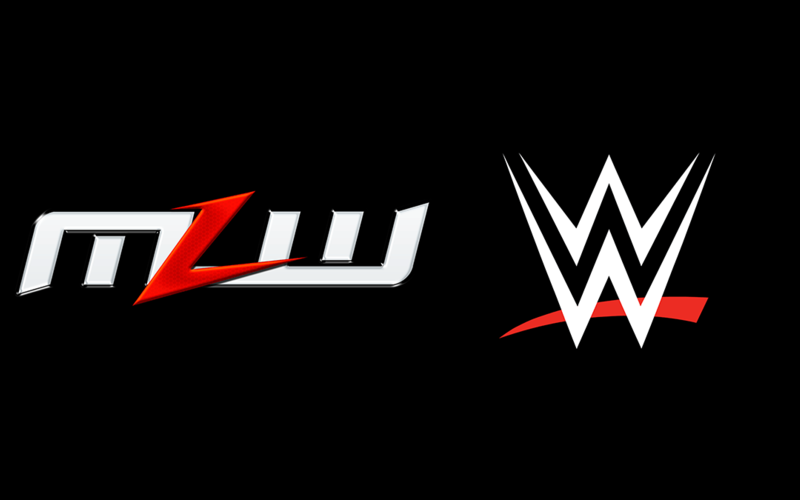WWE’s Motion To Dismiss MLW Lawsuit Denied By US District Court

The WWE-MLW saga continues, and this time Pwinsider is reporting that WWE’s motion to dismiss MLW’s lawsuit has been denied by the Honorable Court.
The ruling qualifies the case to move to trial eventually unless a mutual settlement is reached between WWE and MLW.
As we previously reported here on eWn, WWE filed a motion on May 29th demanding that MLW’s lawsuit alleging violations of the Sherman Act regarding anti-trust practices be dismissed.
WWE alleged that MLW’s amended complaint didn’t state any plausible claims against the company in terms of damage to competition or antitrust standing among other notions.
WWE’s motion was rejected on Thursday by Judge Edward J. Davila in the United States District Court, Northern Division of California.
Judge Davila ruled that MLW made robust allegations for the lawsuit to move ahead.
The judge agreed with MLW’s argument that “other forms of programming content are not economic substitutes for professional wrestling,” and that MLW had “adequately alleged relevant product and geographic markets” where WWE has market dominance via their media rights and streaming rights.
The 14-page ruling noted:
“The Court finds that MLW has sufficiently pleaded circumstantial evidence of WWE’s monopoly power. The FAC alleges that WWE captures 92% of the revenue generated by the sale of media rights for professional wrestling programming. Defendant argues that MLW must allege facts explaining why revenue share is an appropriate measurement of market share, but cites only to cases that evaluated the proper market share metric based on factual findings.
At the pleading stage, MLW’s allegations of the revenues generated from the sale of professional wrestling media rights, and WWE’s 92% share of that revenue (with the next largest competitor possessing a 6% share) are sufficient to show dominance in the market.
In addition to defining the relevant market and alleging WWE’s dominance in that market, MLW has also sufficiently alleged barriers to entry, as required to show circumstantial evidence of market power. Plaintiff alleges that WWE has used its dominant stature in the market to prevent competitors from accessing certain distributors and arenas, (alleging WWE’s exclusivity agreement with Peacock prevents competitors from working with Peacock’s partners, such as Reelz), (alleging Fox and NBC are the two cable networks with the largest coverage in the United States, so that WWE’s exclusivity provisions prevent competitors from accessing a wider audience), WWE caused at least two arenas to reject or cancel bookings by competitors other than MLW).
These barriers, as alleged, are plausible “additional long-run costs that were not incurred by incumbent firms” and that “deter entry while permitting incumbent firms to earn monopoly returns.” Rebel Oil Co.,The factual existence of these barriers, which WWE challengesm is not a question to be resolved at the motion to dismiss stage. Accordingly, the Court finds that MLW has sufficiently alleged circumstantial evidence of WWE’s monopoly power. It need not and does not address the parties’ arguments regarding direct evidence of monopoly power. And since the possession of monopoly power is a greater showing than a dangerous probability of obtaining monopoly power, MLW’s monopoly power allegations are sufficient for both of its claims under Section 2 of the Sherman Act.”
The judge agreed with MLW that they have “sufficiently alleged antitrust injury” as well as “anticompetitive conduct,” stating:
“The FAC alleges that WWE’s exclusivity agreements with Fox and NBC foreclosed competitors from the “two cable networks with the largest coverage in the United States.” WWE also allegedly forecloses its competitors from accessing NBC’s streaming platform, Peacock, which reaches more than 20 million paid subscribers. These allegations, combined with WWE’s 92% revenue share, AEW’s 6% share, and the remaining competitors’ combined 2% share, suffice to make a prima facie showing that WWE’s exclusivity arrangements with NBC and Fox, which “largely foreclosed [] two primary [distribution] channels to its rivals,” had a substantial effect in foreclosing competitors from the professional wrestling media rights market… Accordingly, the Court finds that MLW has sufficiently alleged that WWE engaged in anticompetitive conduct with respect to foreclosure of distribution channels. The Court need not address the parties’ arguments regarding foreclosure of wrestling talent and arenas.”
“The Court finds that MLW has sufficiently alleged antitrust injury. As described above, the FAC alleges that WWE engaged in exclusionary conduct, including foreclosure of primary content distribution channels, in an attempt to continue to dominate the professional wrestling media rights market. MLW’s allegations do not restrict these harms to MLW itself, (alleging WWE prevented or attempted to prevent competitors other than MLW from accessing arenas). MLW also alleges that WWE’s dominance restricts consumer choice, as evidenced by the high viewership of MLW’s first three episodes aired on Reelz and MLW’s inability to stream on Peacock.”
You can keep up with all your wrestling news right here on eWrestlingNews.com. Or, you can follow us over on our Twitter and Facebook pages.
